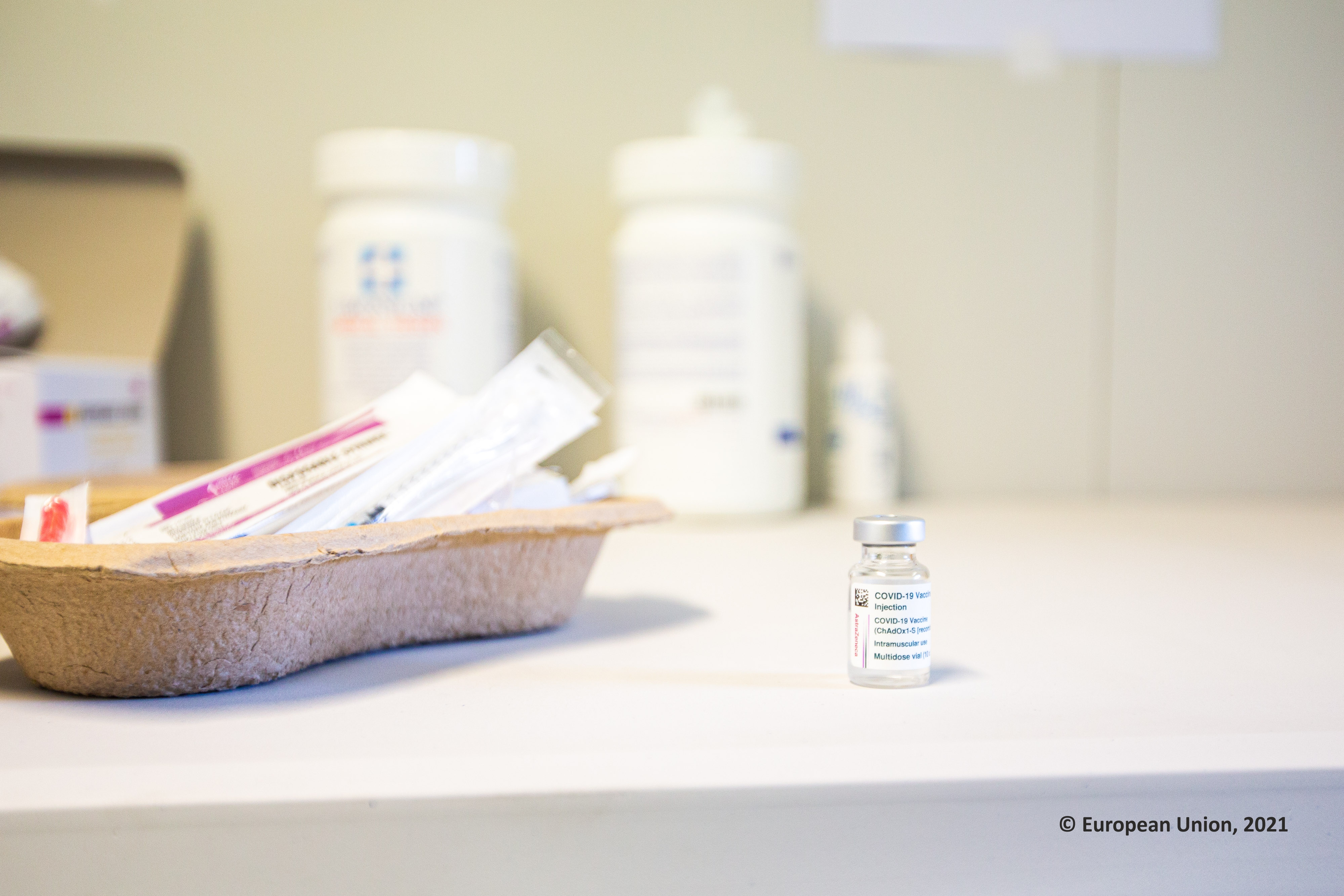Danger of overburdening the health system unfortunately not over / Faster vaccination necessary by all means / Export restrictions of the Commission correct, if they had come earlier, situation would be better now / Open borders for vaccine desirable, but current situation unacceptable
"We should not underestimate the danger posed by the new variants of the coronavirus in any case," said the health policy spokesman for the largest group in the European Parliament (EPP, Christian Democrats), Dr. med. Peter Liese to journalists in Brussels on Wednesday. "It is necessary to continue to be careful and follow the rules. The discussion not paying attention to the incidence rate alone, but also considering other things, is dangerous. Currently, in all EU countries, high incidence rates still lead to a high hospital occupancy rate and also rising death rates. In the view of some people, I may have been too pessimistic as far as the danger of the disease is concerned. However, I have to say that I was still too optimistic. In fall, I never expected that there would be such a bad second wave and that we would be running into a dramatic third wave by now. The coronavirus is even more dangerous than I had imagined. That’s why it is even more regrettable that the vaccination campaigns are not proceeding fast enough," said Liese.
In order to accelerate the speed of vaccinations in the EU, Liese proposes the following concrete measures:
- "I am very frustrated that there is still no agreement to use the seventh dose of BioNTech whenever possible. Everyone is looking for reasons why it cannot be done. However, I have seen in practice that it is possible. The eleventh dose of Moderna must also be used as soon as possible.
- I suggest that, whenever possible, people should be offered an antibody test before they get vaccinated. A paper from the New England Journal of Medicine (https://www.nejm.org/doi/full/10.1056/NEJMoa2034545) shows that people who have antibodies after they have had the disease, with or without symptoms, have a protection level as high as after a vaccination. There are indications, which EMA chief Emer Cooke also confirmed yesterday in the Environment and Health Committee, that the very rare side effect of venous sinus thrombosis after vaccinations with AstraZeneca may be related to antibodies one already had before the vaccination from a symptomatic or asymptomatic infection.
- Representatives from member states should not hold the EU responsible for their own mistakes. The fact that some member states have ordered only a small amount of vaccine from BioNTech and Moderna, should not be detrimental to others. Some countries have always believed in BioNTech and also agreed to buy a lot of BioNTech vaccine at a time when many others were still sceptical. If the vaccination campaign proceeds correctly, compromises should of course be found and those member states that are now suffering from AstraZeneca's cuts, should be supported. But in the short-term, this is not justifiable.
- I support an open-minded review of the Russian vaccine Sputnik without prejudices. In my view, it was wrong of Commissioner Breton to practically exclude Sputnik as part of the European vaccination strategy. At the moment I still have a lot of question marks, but I think an authorization is possible. In case the EMA gives the approval, we should have asked beforehand how much vaccine the Russian state fund RDIF can deliver. I do not think Sputnik will be the game changer, but maybe a small contingent - after a careful authorization procedure in EMA - will help to vaccinate millions of Europeans faster.
- We need to act determined with third countries in the short-term and need more cooperation in the medium-term. It is right that the Commission has now proposed stricter export regulations. Proportionality and reciprocity must be adhered to more strictly than before. I think these measures are urgently needed, and if the rules had already applied in January, more people in the EU could have been vaccinated by now. The reports about the AstraZeneca warehouse in Italy leave me speechless as well. If these are true, it shows that export restrictions are necessary. AstraZeneca should clarify this as soon as possible, otherwise this will have a negative effect on an entire industry. In general, export bans also have disadvantages of course and entail risks, but so far, unfortunately, the UK and the US, which have quasi-export bans, whatever the legal construction, have proceeded better. I would like to see better cooperations in this matter, but as long as this does not really happen, Europe must control its exports better and also limit them more. This is not the best possible way, but the current situation is simply unbearable. In the medium-term, we need more cooperation: together with the United States we must ensure that vaccines can also be produced in third countries and the EU also has to make financial commitments,” said the doctor and MEP.


